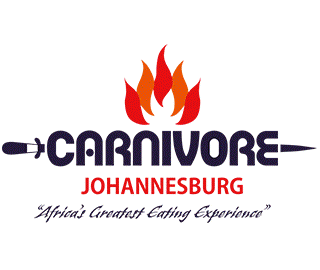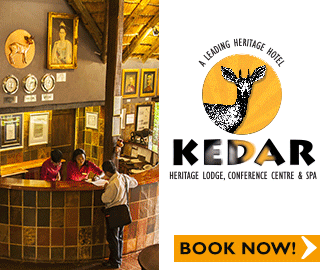
Lagos Nigeria: What Is There To Love?
BY ADEPOJU PAUL 17th NOV, 2014 18:10
Lagos, Nigeria’s business nerve center and commercial capital of West Africa has every odd stacked against it yet it remains one of the most popular cities of the world. For anyone that loves to sleep a lot, Lagos is not the city for you because it is popularly known as the city that never sleeps. As early as 3:00, residents are already on the road and around 5:00, traffic begins to build up.

No one knows when the last person leaves the street – that’s even if the street could even remain empty. Unlike several other cities across Africa where security guards restrict movement and business activities to specific hours, no one can tell Lagosians (as residents of Lagos are popularly called) when not to go around.For West Africans, Lagos is Dubai, London, New York and Mecca. It is an African city with the Golden Fleece, the place where all dreams could come true.The city attracts skilled, semi-skilled and unskilled workers from across West Africa and beyond due to the large number of companies, organizations and multinationals that are in the city.It is therefore not inappropriate to call Lagos the best city in West Africa.
What did Lagos do right, what can other cities learn from it, and what challenges should the state prepare for as it contends with overpopulation? Lagos’ development started when it became Nigeria’s federal capital city. Like almost all capital cities in West Africa, Lagos is on the coastal region and had large sea ports where ships do berth. When the capital of Nigeria was changed to Abuja, many West Africans thought the growth of Lagos had been punctuated. That wasn’t the case as the rate of growth and development in Lagos state continued to increase. More businesses opened in Lagos, many are still opening. It is now very clear that Lagos is Africa’s New York.
In terms of governance which is central to the development of any city, Lagos has been extremely lucky. The last four governments had been continuous, each continuing where the last stopped unlike in other parts of West Africa where there are conflicts, accusations, allegations and natural tendency of the incumbent administration to pull down the former’s legacies. Although Lagos state is the smallest state in Nigeria, West Africa, with an area of 356,861 hectares of which 75,755 hectares are wetlands, yet it has the highest population, which is over five per cent of the national estimate. As at 2006, the population of Lagos State was 17.5 million, (based on the parallel count conducted by the state during the National Census) with a growth rate of 3.2%, the state today has a population that is well over 21 million. This was corroborated by the recent immunization exercise carried out across the state where over 4 million children were immunized.
According to the United Nations, at its present growth rate, Lagos state will be third largest mega city the world by 2015 after Tokyo in Japan and Bombay in India . Lagos’ strongest bargaining currency is its large population which is higher than that of many countries of the world. Lagos state has the largest market in Africa and it is also riding on the success of the organized private sector and multinationals that started and continues to grow, extending to other parts of West Africa. The nightlife in Lagos state is incomparable to anywhere else in Africa. Whatever your status, Lagos has at least a place for you where you can cool off, chill out and relax. It has numerous clubs, beaches, parks, malls and several others for different categories of residents. Many West Africans believe Lagos is attracting more attention than other cities in Western Africa because it supports all categories of individuals.“Anyone can survive in Lagos. Even if you don’t have any form of qualification you can still find a thing to do in Lagos.
The population here is so large that anything can sell. That is why everyone is coming here,” says Okorie Augustine who sells bottled water at night on the Lagos Third Mainland Bridge. Ayo Akanji is a technology expert who relocated permanently to Lagos. He says it is easier to meet potential partners in Lagos than any other part of West Africa.“If you go to the right clubs and other locations, you would meet the right people that you need to advance your business. This is not easy in elsewhere because the gap is wide.”It is therefore clear that the success of Lagos is not as hard as rocket science to decipher; it is all about its huge population. The companies here are making profits because the population is large enough; the government is being applauded because it is attracting more investments and startup scene continues to expand because of innovations aimed at solving the challenges that the large population is facing.
Heavy traffic is probably the singular challenge that the city is battling with. For residents who stay off the Lagos Island, they have to be on the road as early 4:00 to escape the heavy traffic. Accommodation is also expensive, forcing residents who cannot afford to the high cost to move to the neighboring cities across West Africa. New projects are springing up in Lagos state and more land is being re-acclaimed from the waters to give way for new structures. Settlements are getting upgraded. And more jobs are being created for the ever-expanding population who still see Lagos as the place where dreams could be fulfilled.
The city is not void of controversies; as a matter of fact, it is almost impossible for any other African city to become more controversial than Lagos. Recently, the state government was at the center of an extensive controversy and national outbursts especially from Nigerians who are indigenes of the southeastern part of the country. They raised dusts when the Lagos state government ‘deported’ some of their natives who were found roaming about on the streets of Lagos. The affected regions vowed to discourage their natives from contributing to the development of Lagos state, yet buses from this region are filled daily with people heading towards the state.
The reason for this is not farfetched; according to Francis Madojemu, founder of BridgeHub Incubation Center, more than 70 per cent of Nigeria’s revenue is spent in Lagos.“Out of every dollar made in Nigeria, 70 cents is spent in Lagos. The rest of Nigeria including the Abuja Federal Capital City shares the remaining 30 cents. That is just to show the enormous influence that Lagos has on the Nigerian economy.” He added that any serious company will strive to be in Lagos. “It is so simple and straightforward.Lagos has the resources, opportunities and the market is large enough for most products, why stay elsewhere? I don’t think this will change anytime soon.” Although Lagos is relevant in the present, many still see it as a city for the future because of the numerous futuristic projects such as the Eko Atlantic City project that was commissioned by US former president Bill Clinton earlier this year. The state also recently commissioned Africa’s first suspended bridge and the tallest hotel in the entire West African region.Several other similar landmark projects are underway, one of such is the Lagos Bullet Train project; the state is also rejuvenating old infrastructures and residents are having the closest experience to what happens in the developed world.“Lagos is like a country on its own and it is very unique. I am so proud of the achievement the city has been able to record over the years. It shows that even in the midst of the hullabaloos and bad news that characterize Nigeria in the foreign media, Lagos offers a beacon of hope for the nation,” says Seun Akande, a Lagos resident.World leaders are already aware of the beacon of hope radiating from Lagos, southwest Nigeria which is why it is almost impossible for any world leader to visit Nigeria without visiting Lagos. One of the latest visitors is the world’s richest man, Microsoft’s Bill Gates.When music legends visit Nigeria, they are hosted in Lagos.
Busy market scene in lagos, Nigeria
According to the United Nations, at its present growth rate, Lagos state will be third largest mega city the world by the end of 2015 after Tokyo in Japan and Bombay in India. Lagos’ strongest bargaining currency is its large population which is higher than that of many countries of the world."
"
It is no surprise that Mary J Blige, Kerry Hilson, Beyonce, Yolanda Adams, Rick Ross and several other international musicians weekly throng the city. Even local artistes are all interested in winning their share of the Lagos market since all the major record labels are operating from Lagos.
In contemporary Africa however, Lagos continues to attract more people from across the world because it offers the much elusive Golden Fleece.It also supports hustling more than any other African city.E ven though many detest the long hours spent in traffic, the opportunities are overwhelming and the residents are already adjusting to the Lagos lifestyle.
“People keep talking about the traffic; only those who are new in Lagos complain about the traffic. I don’t really encounter major traffic. The secret is to know the right time to leave the house, the route to take and the type of transportation to use,” says Eben Sowah a Togolese resident in Lagos. According to him, there is no manual that gives all necessary information one needs to survive in Lagos; one acquires the knowledge as one becomes more familiar with the city.He said: “It took me just 3 weeks to know the city; for my friend, it took him several months. I don’t know about you. What I know is that at the end we will all come to love Lagos.”
Lagos state is rich in history, relevant in the present and positioned for the future. Little wonder the city slogan is Eko o ni baje (Lagos will never be destroyed). It will always be the only African city that never sleeps.









